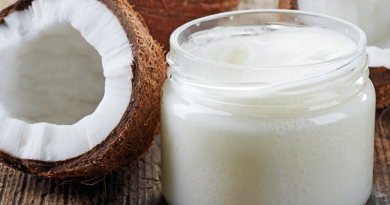Have cancer? Eat plants
By Alisa Herriman, RNCP, ROHP, CHCP
The nutritional protocols used to support an individual going through the cancer process, I believe, can also be considered preventative as well. You do not need to have a cancer diagnosis to want to prevent one. Nothing is killing more Canadians than cancer, and until we take responsibility to support our body’s natural ability to heal, repair and clean itself, and or learn how to participate in a preventative approach, this disease will continue to tear families apart and burden our health care system.
Most diseases are not a card you are dealt so to speak, but more of an opportunistic disease process. The way I look at nutrition from a natural health perspective is the environment (your body), has to be conducive to disease development and its progression in order for it to exist in the environment (your body). For example, I truly believe cardiovascular disease is entirely preventable, it exists only if the diet and lifestyle allow it to exist.
I strongly encourage you to read the book called “The China Study” by Doctors Colin Campbell and Thomas Campbell. I also strongly encourage you to watch the documentary Forks Over Knives.
Looking specifically at cancer, not all cancers are totally diet and lifestyle related, there are genetic cancers, however we have a saying in natural health that goes like this “Genetics may load the gun, but lifestyle pulls the trigger.” In the world of epigenetics, we understand that good and bad genes are turned on or off based on your diet, lifestyle and environmental exposure. Having a high family risk factor does not mean you are guaranteed a cancer diagnosis. It means you need to be more diligent about living a healthy preventative lifestyle.
That being said, what can you do if you are currently navigating a cancer diagnosis, or if you want to take prevention seriously? Well firstly, you have to get your diet right. Very little impacts your overall wellness more than the foods you put into your body on a daily basis.
The equation is super simple; eat the wrong foods, suffer from negative consequences. Eat the right foods, benefit from positive and potentially preventative outcomes.
There is no one-size-fits-all approach to preventative nutrition, or nutritional therapy during cancer. That’s where nutritionists can help create programs for individuals. But there are some foundational nutrition principles that are proven to have a positive outcome and support not only an active cancer journey, but also offer a preventative approach.
Cancer support/prevention nutrition principles
1) Principle one – Eat Plants. Eat lots and lots of plants! In fact, the more fruits and vegetables you consume, the lower your risks for many diseases, including some cancers like colon, prostate and breast, as well as cardiovascular disease and autoimmune conditions. Eating a variety of unprocessed whole plant foods provide much of the essential nutrients our body’s need to be healthy. I encourage clients to consume a minimum of 80 per cent of their calories from plant kingdom.
2) Principle two: Avoid processed foods. Processed foods have taken over our grocery stores and our homes. Most of what the average family purchases is pre-packaged foods, which are, highly processed resulting in minimal to no original nutrition left in those foods products. Combine this lack of naturally occurring nutrients with flavour enhancers, added sodium, added sugar, food colourings, artificial sweeteners, preservatives and now you have the perfect recipe for destruction of your health. I don’t eat perfect 100 per cent of the time; I am not aware of anyone who does. It’s really not about being perfect and avoiding processed foods all the time (unless of course you are navigating a cancer diagnosis, where you need to consider that a little bit of poison is still poison). It’s about being “awake” and realizing that consuming processed foods every day offers no nutritional benefits and is in fact harmful to your health.
3) Principle three – You cannot out supplement a bad diet. I believe in the use of good quality whole food-based health products, but only when combined with healthier dietary habits do I believe they offer their full benefits. The foods you fuel your body with matter most, second is what you use to fill the gaps in your diet that might occur due to a busy schedule, periodic stress or when fighting illness. If adding health products to your regime, ensure they are whole food sourced third-party tested for purity and cleanliness of the product, and human clinical evidence of their efficacy.
4) Principle four – Choose local organic. Organic vegetation grows in a much higher soil quality and has the added benefits of not being sprayed with chemicals during the growing process. Choosing organic foods not only reduces blood pesticide levels, but also decreases the amounts of genetically modified foods, antibiotics, pesticides, fungicides, and herbicides that are applied to commercially grown produce.
If you are currently navigating a cancer diagnosis these above principles can have a tremendously positive impact on how you feel, heal and recover. Nothing in your body happens without nutrients being present, and the better quality of your food choices, the more nutrients that are available to support overall health and healing. Nutrition dose not heal disease, your body does that, but you need to give it the building blocks of health in order for healing to happen.
Alisa Herriman has been teaching nutrition for over 15 years, and co-facilitates the Holistic Nutrition for Cancer Program at Edison Institute of Nutrition. She is the founder of Nutrinity Health Services. She has 12 years’ experience specializing in nutritional protocols for those with cancer. Visit www.AlisaHerriman.com for information about Alisa’s nutritional programs.
Visit https://www.edisoninst.com/ for more information.




